| "We have seen over the course of the past 10 days a dramatic acceleration in the build-up of Russian forces and the disposition of those forces in such a way that they could launch a military action essentially at any time." -White House national security adviser Jake Sullivan on the the movement of Russian troops near Ukraine's border Welcome to the "Face the Nation" Five at Five newsletter. Scroll down for your five takeaways from today's broadcast of "Face the Nation with Margaret Brennan" on CBS. Did someone forward you this? Sign-up at cbsnews.com/email. 1. Sullivan: Russian forces waiting "go order" to invade Ukraine 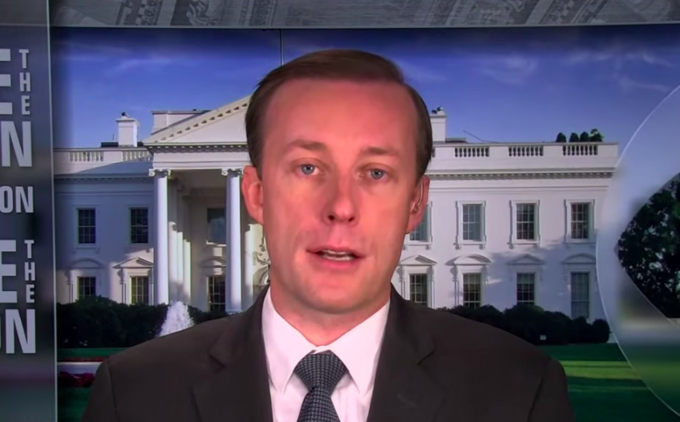 White House national security adviser Jake Sullivan said Sunday that Russia's ramp-up of forces around Ukraine over the past few days indicates Russian President Vladimir Putin could give an order for military action "essentially at any time." What we asked: "You said an attack by Russia could happen as soon as this week. Are you seeing Russian troops move into tactical positions?" What Sullivan said: "We have seen over the course of the past 10 days a dramatic acceleration in the buildup of Russian forces and the disposition of those forces in such a way that they could launch a military action, essentially at any time. They could do so this coming week. But of course, it still awaits the go order. And so therefore, we cannot predict the precise day or time that they may take action. We also are watching very carefully for the possibility that there is a pretext or a false flag operation to kick off the Russian action in which Russian intelligence services conduct some kind of attack on Russian proxy forces in eastern Ukraine or on Russian citizens, and then blame it on the Ukrainians." Why it matters: Tensions between Ukraine and Russia have escalated as more than 100,000 Russian forces have amassed along Ukraine's borders, even as the U.S. and Western allies have urged Putin to engage in diplomacy. 2. Kinzinger: January 6 committee expects Giuliani to "fully" cooperate 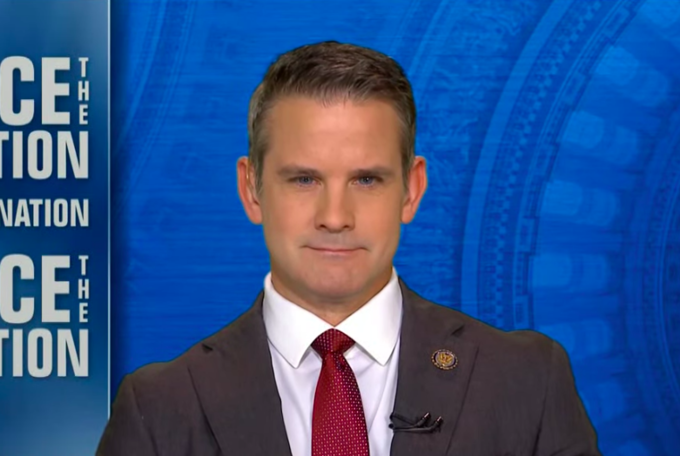 Republican Congressman Adam Kinzinger, one of two GOP members of the House committee investigating the January 6 assault on the U.S. Capitol, said Sunday that the panel "fully" expects Rudy Giuliani to comply with its subpoena for testimony. What we asked: "You are on that January 6 committee, as we mentioned, Rudy Giuliani, the president's attorney, former attorney, is apparently speaking to the committee in some form. Is he being cooperative at this point? What can you tell us about that?" What Kinzinger said: "Well, what I can tell you is he's been subpoenaed, our expectation is he is going to cooperate because that's the law, that's the requirement, same as if somebody subpoenaed to court. There may be some changes and dates and moments here as, you know, lawyers do their back and forth. But we fully expect that in accordance with the law. We'll hear from Rudy. But look, regardless of when we hear from Rudy or how long that interview is, we're getting a lot of information and we're looking forward to wrapping this up at some point when that is right, showing it to the American people, but not rushing it, not hurrying this. We want everybody to have the full story. That's what's important. I have a new son. I want to make sure that in five and 10 years, when he's learning about this and history class, he gets the full answer and not some conspiracy garbage that we hear out there every day." Why it matters: The committee issued subpoenas last month to conservative lawyers Jenna Ellis and Sidney Powell and former Trump White House aide Boris Epshteyn. The trio pushed unsupported theories that the 2020 election was rife with fraud and appeared together for a November 19, 2020, press conference, during which they claimed Mr. Trump won in a "landslide." 3. Gottlieb: Issues identifying "level of efficacy" caused COVID vaccine delay for children under 5 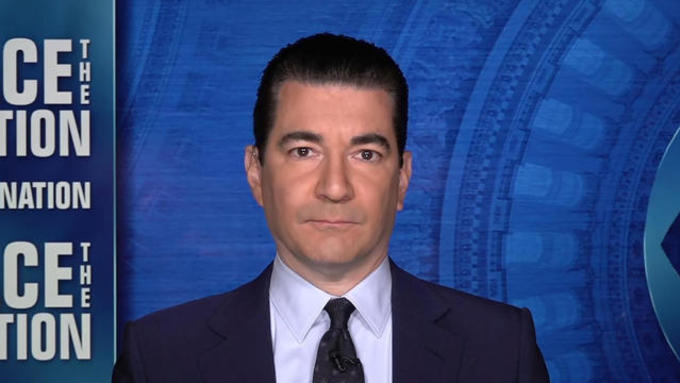 Dr. Scott Gottlieb, former FDA commissioner and a current board member at Pfizer, explained Sunday how a changing data set, and not safety concerns, was the main factor in the FDA's decision to delay its meeting on vaccinating America's youngest. What we asked: "Doctor, I have to say there was a lot of whiplash this week with the FDA and the Pfizer decision to hit the brakes on this vaccine for toddlers, for children ages 4 and younger. Now we have to wait until April for a decision. What happened?" What Gottlieb said: "Yeah, there were no new safety issues coming out of the data set, the issue here is the ability for the FDA and for Pfizer to clearly define the level of efficacy that the vaccine is delivering. And what you have is a situation where the data sets continuing to evolve because we're still in the middle of this Omicron wave of infection, there's still infections accruing on the patients in the clinical trial, both the patients who have been vaccinated and the patients who've been unvaccinated. And so, the data set is changing. And there was additional data that was submitted to the FDA late last week, on Thursday and Friday, that changed the FDA's perception of the absolute efficacy of the vaccine. And given the fact that that is changing, that's evolving, new data is accruing -- it's hard for the FDA to give its advisers a fixed snapshot of what the absolute efficacy is of this clinical trial, of the data set. And so, if they wait a little longer, if they administer the third dose in that clinical trial, they're not only going to have perhaps a better measure of effectiveness from this trial, but they'll also have a settled data set. They'll have a very firm picture of what-- what level of effectiveness the vaccine is delivering, and that's important for patients and pediatricians to be able to make fully informed decisions, because it's important to know that the vaccine is safe. But it's also important to know what the level of effectiveness that's delivering as well." Why it matters: The U.S. Food and Drug Administration this week delayed its meeting about a COVID-19 vaccine for children younger than 5, saying they wanted to see more data from Pfizer before proceeding. 4. Murphy: New Jersey's COVID experience is "very different" from other states, hence rollback of school mask mandates 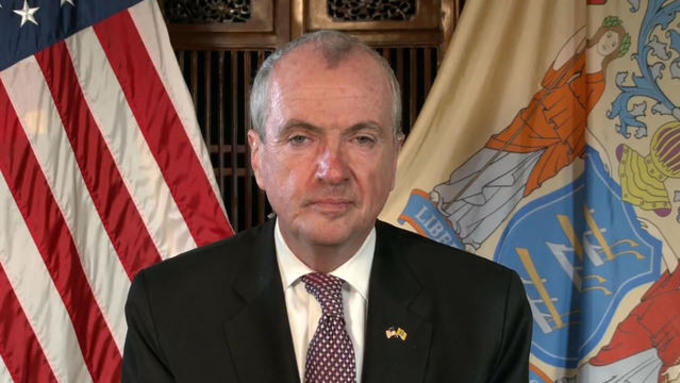 New Jersey Governor Phil Murphy was part of a group of Democratic governors who broke last week from federal guidance and announced a rollback of school mask mandates. He joined Margaret Brennan on Sunday to explain the reasoning beyond the decision. What we asked: "The CDC says we are not there yet. You say you're following the science, so what do you know that the CDC director does not?" What Murphy said: "Our numbers are- are improving and I would use the word dramatically. Rate of transmission, positivity rate, hospitalizations, cases, in-school transmissions, all going in a dramatically good direction. The- the- challenge is this- this spike, this- this variant has spiked straight up, and it's now coming straight down. New Jersey, New York, got hit early in this wave, as we have in all of the waves. The fact of the matter is our experience is very different right now from the average American state's experience. So, the CDC, which we have been adherent to from the get-go, and we think they're doing a terrific job, they've just got a much more complex reality. The- the science and the data and the facts on the ground in New Jersey have allowed us to take this step." Why it matters: The changes come as the Omicron-fueled winter surge seems to be fading in most parts of the United States. California Governor Gavin Newsom, Delaware Governor John Carney and Connecticut Governor Ned Lamont joined Murphy this week in announcing some rollback of indoor masking requirements. 5. Daly: "Measured" interest increases could help inflation 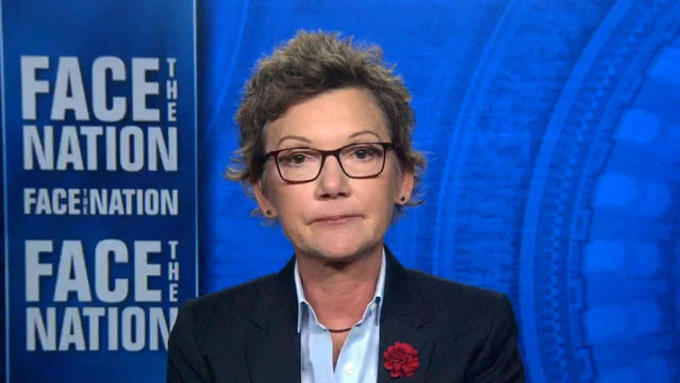 Mary Daly, the president and CEO of the Federal Reserve Bank of San Francisco, said Sunday that "the most important thing is to be measured in our pace and, importantly, data dependent" when it comes to increasing interest rates to fight inflation. What we asked: "You said you do not favor a half a percent increase in interest rates in March. What do you favor?" What Daly said: "So, I look at the data and I see that it is obvious that we need to pull some of the accommodation out of the economy. But history tells us with Fed policy that abrupt and aggressive action can actually have a destabilizing effect on the very growth and price stability we're trying to achieve. So, what I would favor is moving in March and then watching, measuring, being very careful about what we see ahead of us and then taking the next interest rate increase when it seems the best place to do that. And that could be in the next meeting, or it could be a meeting away. But either way, the most important thing is to be measured at our pace and importantly, data dependent." Why it matters: Despite other sectors of the economy doing well, inflation is still what concerns Americans the most. According to the latest CBS News poll, 59% of respondents classified the U.S.' economic state as "bad." Margaret Brennan's Watch Magazine cover story  Margaret Brennan is on the cover of the January/February 2022 issue of CBS Watch Magazine, out now. Celebrating her fourth anniversary as moderator of America's #1 Sunday morning public affairs program, Brennan talks about the keys to her success, her top moments on the show and a bit about her life at home. Leaf through the digital edition here. |
No comments:
Post a Comment